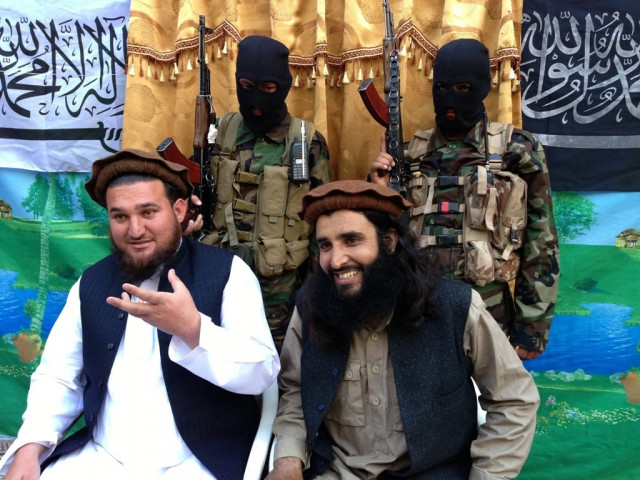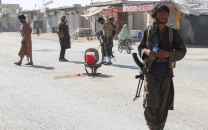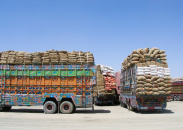Why Pakistan should not talk to the TTP
Terrorists who killed thousands of Pakistan civilians, soldiers, police need to be dealt with an iron hand & defeated.

Tehreek-e-Taliban Pakistan (TTP) spokesperson Ehsanullah Ehsan (L) and with new TTP member Adnan Rasheed address a press conference in Shabtoi, a village in South Waziristan, on February 2, 2013. PHOTO: AFP
Now, PML-N chief Nawaz Sharif has staked out a position on the prospect of holding negotiations with the Taliban and he is firmly in favour of the idea. He wants the government to take the idea of talks very seriously and immediately work to initiate them. At the same time, he has refused the TTP’s request that he act as a guarantor for the talks, saying that given the past record of this government he cannot insure their participation. This is a typical Nawaz Sharif manoeuvre. He is trying to come across as a man of peace while blaming the government for its violent and double-crossing tendencies. Yes, this government has been reluctant to hold talks with the Taliban, but that is because they were burned soon after taking power. The PPP and its allies had been very keen to negotiate with the Taliban in Swat but once those broke down it realised that the military option was the only way to go. In fact, several peace deals in the past with the Taliban failed because they did not honour them and used them to consolidate and regroup.
Simply calling for negotiations is not enough. Those asking for that must answer some difficult questions. They should be asked whether the TTP’s past refusal to follow agreements signed with the government do not give cause to pause before advocating such a policy measure. Also, what kind of message is being given to the ordinary Pakistani — that if you indulge in violence and wage a war of terrorism against the country and state, you will be rewarded with a talks offer. By definition, a negotiation involves a certain amount of give and take. What exactly should be given to the Taliban given the fact that in the past, if a little bit was conceded they took a mile? Are they willing to hand over the tribal areas in return for a promise of peace that is unlikely to be kept? Obviously the TTP will refuse to disarm before negotiations so there is no way of preventing them from continuing to carry out attacks. Furthermore, those arguing for talks and criticising the government for being unwilling to negotiate ignore the unfortunate reality that it is the military which is the ultimate power broker and that no talks can be held unless it agrees. In that context, the army chief’s recent remarks that Pakistan’s number one enemy is now internal, i.e., militants, doesn’t tie up well with this push for talks.
The fact of the matter is that those who think that the militants will lay down their arms and blend in with mainstream society once the Americans leave Afghanistan or if there are talks, are sadly mistaken. The past has shown that this is unlikely to happen because the overarching aim of the militants, while fighting the Americans and Western forces in Afghanistan and other parts of the Muslim world, is to impose their own version of Sharia. This is something that those pushing for talks needs to understand and perhaps they are either being naïve or are sympathetic to the cause of the Taliban.
The Taliban is a force that must be defeated, not accommodated. That will only be possible if there is unity among political parties on this issue. Terrorists who have killed thousands of Pakistani civilians, soldiers, police and other law-enforcement personnel need to be dealt with an iron hand and defeated — that’s the way the rest of the world does it.
Published in The Express Tribune, February 9th, 2013.



















COMMENTS
Comments are moderated and generally will be posted if they are on-topic and not abusive.
For more information, please see our Comments FAQ